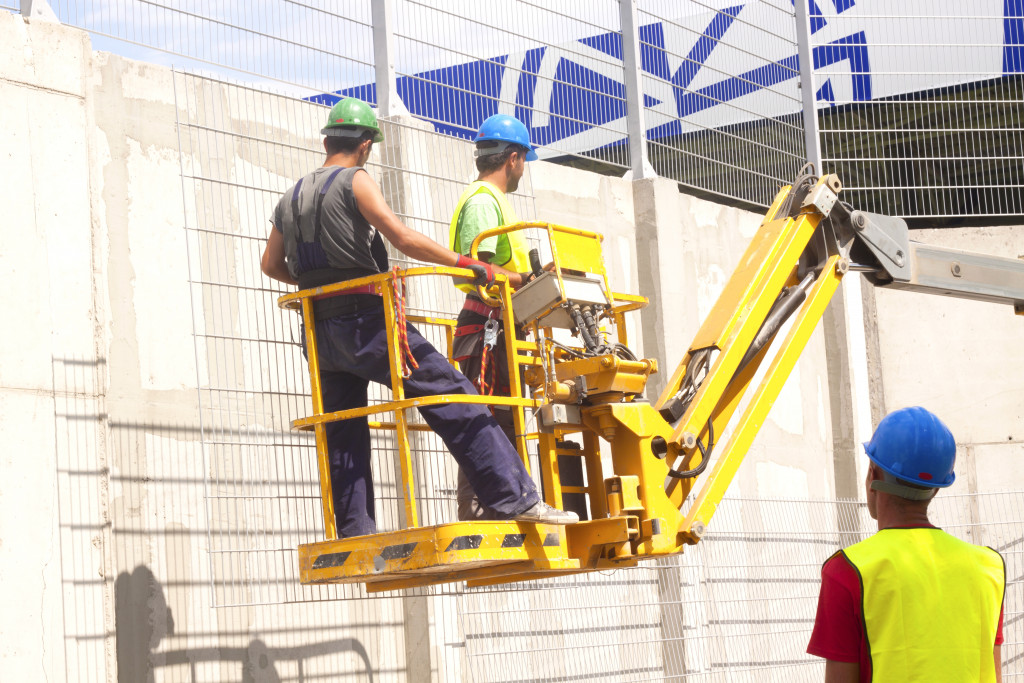- Develop a comprehensive business plan to define service goals, target market, pricing strategy and more.
- Obtain necessary licenses and permits that are required by the jurisdiction.
- Build a professional network of subcontractors, suppliers, and industry professionals.
- Implement effective project management systems for streamlining project progress and budgeting.
- Find reliable equipment for the business’s specific needs, researching prices and warranties.
Starting a construction business can be a rewarding and lucrative venture. It lets you showcase your building and renovation skills and expertise while providing clients with essential services. However, launching a construction business requires careful planning, strategic decision-making, and attention to detail. This guide will provide five valuable tips to help you start a successful construction business. From setting a solid foundation to finding the right equipment, these tips will guide you through the early stages of your entrepreneurial journey.
1. Develop a Comprehensive Business Plan
A well-structured business plan is the foundation of a successful construction business. Start by defining your business goals, target market, and services you will offer. Research and analyze your competitors to understand the market landscape and identify areas where you can differentiate yourself. Determine your pricing strategy, considering labor costs, material expenses, and desired profit margins.
In your business plan, outline your marketing and sales strategies to attract clients and secure projects. Define your organizational structure and roles within the company, including hiring plans and potential subcontractors or partners. Include financial projections, budgeting, and funding strategies to ensure your business has a solid financial footing.
2. Obtain the Necessary Licenses and Permits

Before starting your construction business, it’s crucial to understand and fulfill all legal requirements. Research the licenses and permits necessary to operate in your jurisdiction and comply with building codes and regulations. Common licenses include a general contractor license, specialty trade licenses, and permits for specific projects or locations.
Ensure that you meet all the requirements, such as passing examinations, providing proof of insurance, and meeting experience or education prerequisites. Failing to obtain the necessary licenses and permits can result in legal consequences and jeopardize the success of your business. Take the time to understand the regulations and work with the appropriate authorities to secure the required documentation.
3. Build Your Professional Network
An extensive professional network can be invaluable for any business owner looking to grow their venture. Network with potential subcontractors, suppliers, and industry professionals who can provide access to resources and connections. Establish relationships with local businesses in the construction industry for potential referrals or joint ventures.
You can also join networking groups and associations to enhance your presence in the marketplace. Participate in community events like trade shows or conferences to expand your reach and build brand awareness. Develop connections on social media platforms such as LinkedIn to reach a broader audience of prospective clients.
4. Implement Effective Project Management Systems
Efficient project management is essential for the success of your construction business. Implement robust systems and processes to streamline project planning, scheduling, and execution. Invest in project management software that allows you to track project progress, manage budgets, and communicate effectively with your team and clients.
Develop a standardized approach to estimating project costs, preparing bids, and managing change orders. This ensures your pricing and financial management accuracy, consistency, and transparency. Effective project management systems improve productivity, minimize delays, and enhance client satisfaction.
5. Find the Right Equipment

Having the right equipment is vital for the success of your construction business. Assess your specific needs based on the type of projects you will undertake and invest in high-quality, reliable equipment. Purchase or lease equipment such as excavators, loaders, scaffolding, and power tools from reputable suppliers.
Here are some tips for finding the right equipment:
Research the Market
Do some research to determine what type of equipment will suit your business needs. Compare prices and features among different suppliers, and read reviews from other customers.
Consider the Cost
Think about whether you are going to purchase or lease the equipment. Leasing may be more cost-effective in the short term, but purchasing may be better for long-term savings. Consider all associated costs, such as maintenance, insurance, and storage fees, when making a decision.
Ask About Warranties
Make sure you understand what warranties are available on the equipment you are looking at purchasing or leasing. Many suppliers offer extended warranties, which can provide additional protection against any malfunctions that may occur with your equipment over time.
Consider a Rigging Shop
If you don’t have the time or resources to shop around for individual pieces of equipment, utilizing a reliable rigging shop can provide an all-inclusive solution. A rigging shop typically carries different types of construction equipment and supplies that are designed to work together. They also offer additional services such as delivery, installation, repairs, and maintenance. This can make life much easier for business owners who need quick access to reliable equipment.
To Wrap It Up
Starting a construction business requires careful planning, attention to detail, and a strategic approach. By developing a comprehensive business plan, obtaining the necessary licenses and permits, establishing a reliable network of suppliers and subcontractors, implementing effective project management systems, and finding the right equipment, you can lay a solid foundation for your construction business. Building a successful construction business takes time, effort, and a commitment to delivering high-quality work. With the right strategies and a customer-centric approach, you can position your business for long-term success in the construction industry.



